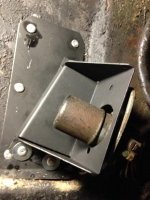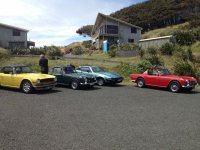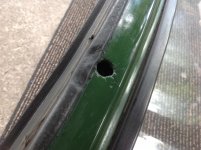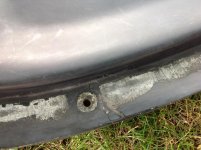Jim R. Walker
Freshman Member
Offline
Ok - could someone help me? I have a 67 BJ8 that runs great except when I turn off the ignition the engine runs a few more moments and coughs, shakes before finally turning itself off.
I tried looking at the various manuals, Haynes etc but can not locate this problem or solution.
Thank you.
I tried looking at the various manuals, Haynes etc but can not locate this problem or solution.
Thank you.

 Hi Guest!
Hi Guest!

 smilie in place of the real @
smilie in place of the real @
 Pretty Please - add it to our Events forum(s) and add to the calendar! >>
Pretty Please - add it to our Events forum(s) and add to the calendar! >> 









